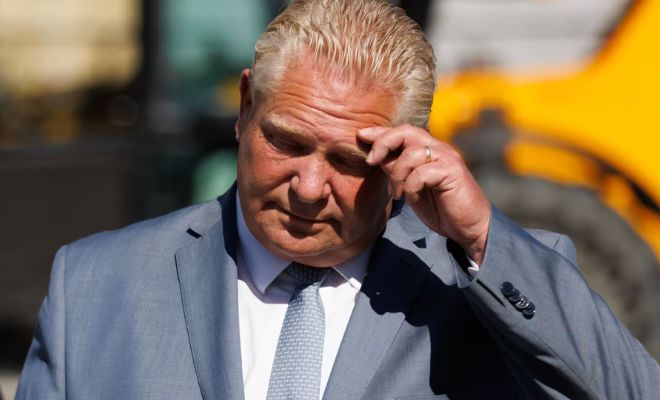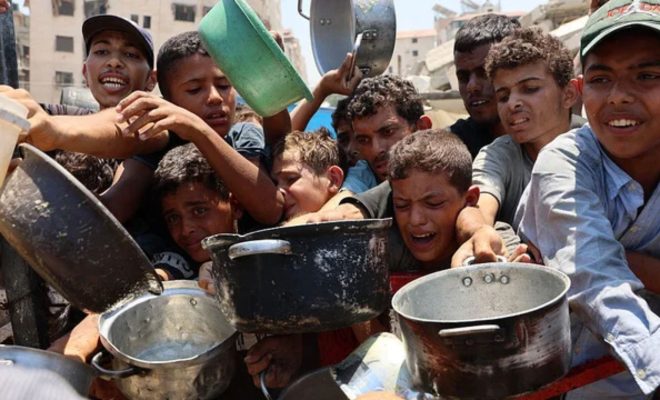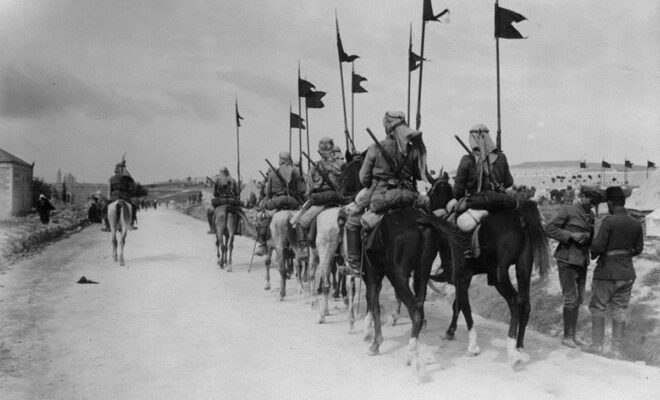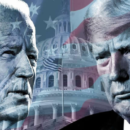Protecting the Public’s Interests Under the Rule of the Elite

As reported on the CBC, the “Ford government removed approximately 2,995 hectares of land from the Greenbelt in December [2022], while adding land elsewhere, to build 50,000 homes. The Greenbelt is a vast 810,000-hectare area of farmland, forest and wetland stretching from Niagara Falls to Peterborough that was meant to be off-limits to development.
Very early into this controversial decision, reporters at the Toronto Star and the Narwhal started to question why so many big developers had purchased the Greenbelt properties that had been removed from the Greenbelt, standing to make a huge profit. The province had not consulted with indigenous communities, conservationist experts, or the public when determining what land would be made available for development.
So how did the developers know which land to buy beforehand? Based on the reporting and pressure from opposition parties, Ontario’s auditor general investigated the issue and found that the entire process of selecting land to remove from the Greenbelt was influenced by a few elite property developers that had access to the housing minister’s office, ignoring the needs and concerns of everyone else. The property developers went as far as suggesting which land, they thought should be made available for development. It was discovered that 92% of the land that was removed from the Greenbelt was specifically requested by these property developers.
Doug Ford has acknowledged problems in land selection, has blamed someone who reported to the housing minister and has accepted his resignation. He has also suggested that he will act on every recommendation in the auditor general’s report, except for one, the one that would require him to reverse the land selection decision. In short, he has shifted the blame to someone under him, fired them, and refused to change anything that would benefit the elite property developers, many of whom donated to his political campaign.
What can we learn about the nature of decision-making in liberal democracies through this example? And what should we as Muslims do with this lesson as we navigate political life in Canada?
Rule of the Elite
What should be clear from this example is that decision making in capitalist democracies is not built on consultation with the public, or the search for evidence-based policy. Rather, it is built on what the richest and most connected people want.
This should not be surprising. Afterall, Capitalism is, at its core the rule of the elite. This is because it places almost no limits on what people can do with their money and encourages individuals to act in their own self-interest. This means that those people who are born with the most money, talent or connections are able to use their wealth and access to fund media campaigns, finance politicians, and create lobby firms and think tanks to influence elected officials and bureaucrats.
This is why complicated issues like conserving agricultural land, providing affordable housing, or protecting forests are not solved in a transparent or lasting way. Rather politicians, while going through the motions of debating in parliament and hearing differing arguments and testimonies, are actually making these decisions at business dinners with their wealthy sponsors and future employers.
Understanding Political Debates
Knowing what we know about decision making in this system, it should be clear that siding with a party to fix complicated and heated political issues is a waste of time. Any public debate that a political party engages in on the importance of the greenbelt, or the need to reduce it in order to meet housing needs, is entirely pointless. They will do what the elite want them to.
Doug Ford can justify his decision to open up the Greenbelt by indicating his interest in helping immigrants get affordable housing, but this is not what his decision was based on. If it had been based on the public interest, he would have consulted the public on what areas of the Greenbelt they wanted opened up. Or he would listen to the concerns of conservationists who have argued that there are more than enough houses and apartments that can be built in high density urban areas where residents would have access to more services. Ultimately, his decision was made by the chief of staff of the housing minister who had dinner with some property developers who were close to Ford.
This is true for the most highly politicized debates that the elected politicians engage in, even at the federal level. There is a complicated discussion around what Canada should do to respond to the changing climate, and address its role in this growing problem, especially as we see an increase in extreme weather events, such as the terrible forest fire season we witnessed this summer. Liberals will talk about the need to address global warming, while Conservatives will argue that humans are not contributing to climate change, and we should invest in disaster mitigation strategies such as controlled burns and clearing in forests.
But Liberals will not actually take serious steps to reduce carbon emissions unless the economic elite support it. This is why Trudeau cannot stop supporting pipelines, even if it is in flat contradiction to his climate agenda, or his tearful public apology to indigenous people whose lands those pipelines will go through. His funders will not let him stop support the pipelines, regardless of what he says about the environment. And conservatives will not spend a dime on disaster mitigation strategies, in forests or anywhere else, unless this is spending that their funders approve of.
What is abandoned in this decision making of the elite is the actual needs of the people, and any right they may have to be consulted in these decisions.
Our Response – Principled Disengagement
Given the nature of these political parties, aligning with either of them to protect our community’s interests is not only futile but also counterproductive. The truth is that these parties are dominated by powerful men to whom they are beholden. Many influential figures are selfish and detached from the needs of society. However, even those with good intentions cannot govern justly. Their judgment is biased, their knowledge is limited, and their perspectives are incomplete. Without guidance from the Creator of the universe, they are incapable of establishing a just system that addresses people’s needs. Allah (swt) tells us:
“And those who do not judge by what Allah has revealed are truly unjust.” [TMQ 5:45]
Rather than allying ourselves with the rule of men, we should be sharing with others the complete system of Islam, which provides clear answers to our personal, familial, communal, and societal problems.
Islamic Politics – Consultative and Prescriptive
Politics in Islam is different from politics in Capitalist societies. In Islam, siyaasah (politics) means looking after the affairs of the people and is a continuation of the work of the prophets. Our beloved messenger told us:
“The Children of Israel were being ruled by the Prophets. When one prophet died, another succeeded him. There will be no prophet after me. Khulufah (Caliphs) will come after me, and they will be many.” [Bukhari and Muslim]
Imam Nawawi commented on this hadith: “[They] were ruled by the Prophets” means the Prophets took care of their affairs as rulers who are in charge of the people do. Thus, siyaasah means to take care of something in a manner that maintains its well-being and serves its interests.”
In the political system of Islam, the needs of the people are met by three means. Firstly, there are matters in which the Creator, out of His Wisdom and Mercy has prescribed a solution to a problem. This includes the prohibition of riba (interest), the banning of alcohol, or the prevention of monopolies. Allah (swt) has decided these matters, and nobody, regardless of their power or status are able to question these rules. For example, Umar (ra) whipped his son, Abu Shahma, in public for consuming intoxicants. His son received no special treatment for his blood ties to his father, who was the ruler (the Khaleefah) at the time.
In terms of the topic at hand, Islam had designated certain lands to be common. RasulAllah (saw) said: “The Muslims are partners in three, water, pastures and fire” [Ahmed, ibn Majah] This means no khaleefah (ruler) can privatize the lands, regardless of how much the elite pay him to do so.
Secondly, there are matters that require expert opinion. Issues to do with ecology, disaster management, or public health should not be decided through a popularity contest, as the correct view on an issue may not be intuitive or popular. Rather the experts of that field should be consulted to ensure the most correct guidance is being acted upon. For example, RasulAllah (saw) solely took expert advice on where to position the army during the Battle of Badr.
Finally, there are issues that affect communities directly, and they are the most knowledgeable on how to deal with them. The community knows whether it is in more need of a school or a hospital, for example. Here, the opinion of the people is sought through consultation or holding a vote on the matter.
It is through this divinely ordained approach that we can avoid the dominance of a particular economic and political class over the common people.
It is then no wonder that this social, political, and economic system of Islam is opposed by the global Capitalist elite. They know if the system of Islam were to emerge, it would stop their plunder and pillaging of the resource-rich Muslim lands, where they have planted a local elite to subjugate the common people while funneling wealth to their colonial masters. What is more, it would become a beacon of light and hope worldwide, demonstrating to people everywhere that another way of organizing society is best.
It is our duty as an Ummah to convey this hope to the world by committing ourselves to the return of the just Islamic governance in the Muslim lands. This is the global unified political vision that Islam gives us, may Allah (swt) make us of those who strive to make it a reality.
“You are the best nation produced [as an example] for mankind. You enjoin what is right and forbid what is wrong and believe in Allah. If only the People of the Scripture had believed, it would have been better for them. Among them are believers, but most of them are defiantly disobedient.” [TMQ 3:110]









